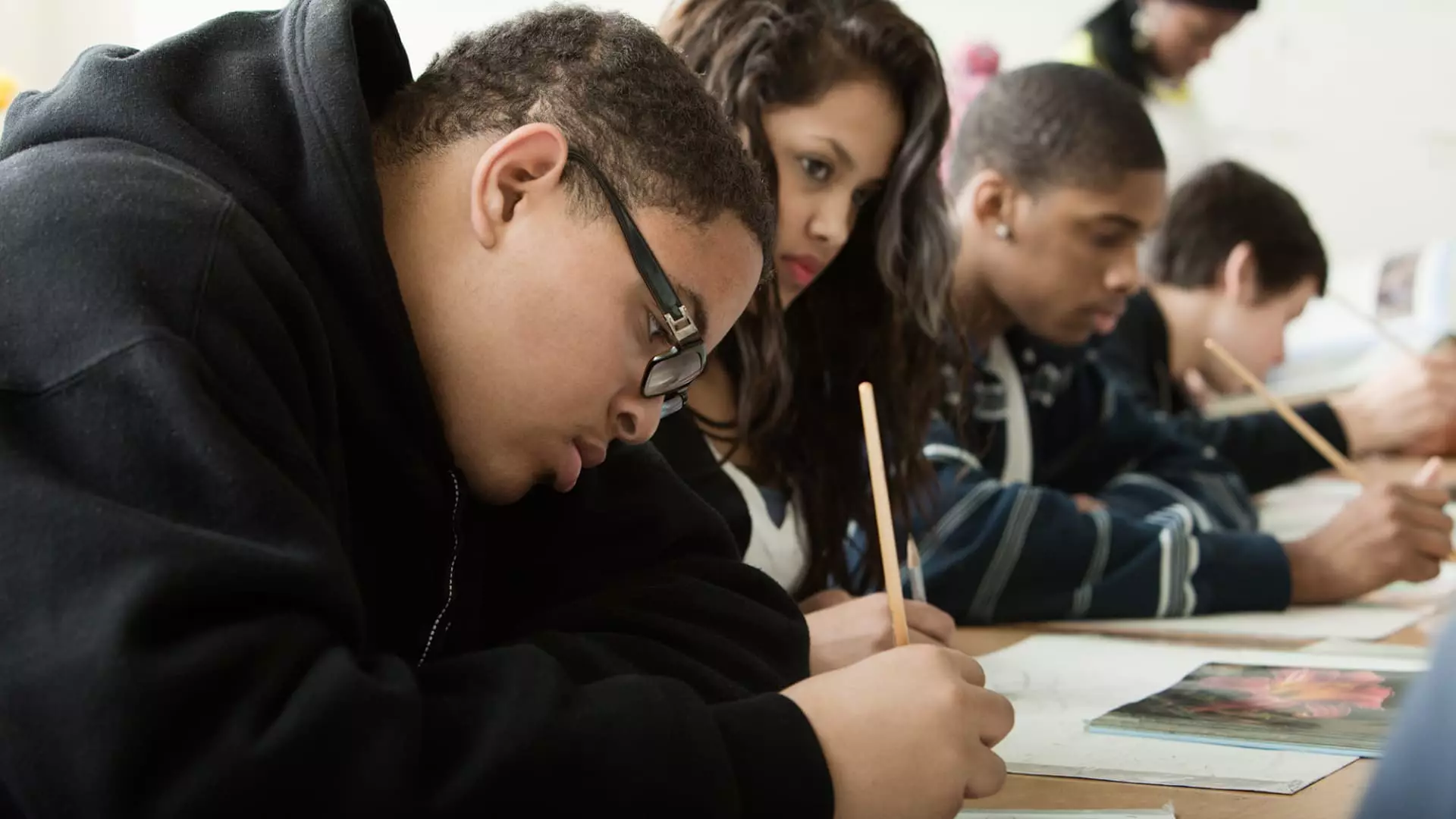In today’s fast-paced world, the significance of financial literacy cannot be overstated, especially for underprivileged youth. One shining example is Keith Harris, a high school senior at KIPP DC College Preparatory, who embodies the transformational power of early financial education. As a participant in the NAF Academy of Business program, Harris not only engages with traditional academic subjects but also dives deep into the realms of accounting, investing, and budgeting. This unique blend of skills equips students with the tools they need to navigate their financial landscapes effectively and has life-changing implications.
Harris received a full college scholarship, allowing him to save and invest his earnings from part-time work. He reflects on the program’s impact, stating, “It laid down a good foundation for me.” Such testimonies illuminate the critical lessons being imparted in high school settings that extend far beyond mere academic knowledge. For these students, financial literacy becomes a lifelong asset, enabling them to tackle financial decisions head-on with confidence.
What sets the KIPP DC program apart is its long-term, three-year curriculum focused on financial education. Unlike other educational institutions that might offer finance education as a brief course, KIPP DC College Preparatory integrates financial literacy throughout the student experience. More than 160 students participate weekly, learning critical skills such as budgeting and risk management along with their regular coursework. The offering of NAFTrack certification demonstrates not only academic accomplishment but also readiness for the workforce, empowering graduates beyond the classroom walls.
Additionally, programs like the First Generation Investors program add a layer of invaluable real-world experience. Collaborating with tutors from Georgetown University’s McDonough School of Business, students work on capstone projects that bridge theoretical knowledge with practical application. Opportunities for internships with respected companies such as Ernst & Young and the Navy Federal Credit Union further enrich their learning experience. These internships are not just mere resume entries; they’re vital experiential learning moments that prepare students for future careers, a fact that Shavar Jeffries, CEO of the KIPP Foundation, emphasizes when discussing the program’s ultimate goal of breaking cycles of poverty.
As the program enhances financial literacy within the student body, the teachings extend into families’ homes, creating a ripple effect of financial awareness within the community. Donyae Vaughan, another senior at KIPP DC, demonstrates this perfectly as she discusses how her classes in accounting and investments have influenced her family discussions. “Every time I learn something new, I would go home and talk about it with my mom,” she notes. This shared learning experience reinforces not only individual financial growth but also collective community resilience.
Such programming addresses a gap in financial education where it is mostly lacking, particularly in communities with fewer resources. According to Raven Newberry from the National Endowment for Financial Education, substantive programming like that at KIPP DC is atypical but essential for empowering students with the financial acumen to navigate their futures. With nearly half of states now mandating financial literacy education, the importance of such curricula is increasingly recognized as a fundamental tool for future success.
Research continually supports the correlation between financial education and positive economic outcomes. Studies show that students who engage in personal finance courses early on are far more equipped to apply for lower-cost financial assistance when attending college. They are also less likely to incur high-interest debt or turn to private loans, which can lead to long-term financial burdens.
Moreover, data from the Financial Industry Regulatory Authority illustrates that young adults who have undergone financial education typically enjoy better credit scores and lower rates of debt delinquency. Studies from the Brookings Institution reinforce these findings, indicating that young individuals with financial literacy skills tend to accumulate more assets and achieve higher net worth by their mid-twenties.
The lasting impact of financial education extends far beyond immediate financial decision-making; it lays the groundwork for long-term financial health. Individuals equipped with financial literacy skills are not only better prepared to avert financial crises but are also more capable of planning for retirement and achieving economic independence.
In an era where financial mismanagement can lead to serious repercussions, the robust educational initiatives being led by institutions like KIPP DC College Preparatory represent a beacon of hope. By offering continued financial education from an early age, we pave the way for future generations to break free from cycles of poverty and achieve financial autonomy. The influence of equipped youths like Keith Harris and Donyae Vaughan will ripple throughout their communities, creating a brighter, more financially literate future for all. In understanding that economic security is integral to empowerment, we can foster a society where every individual has the knowledge and skills to thrive.

